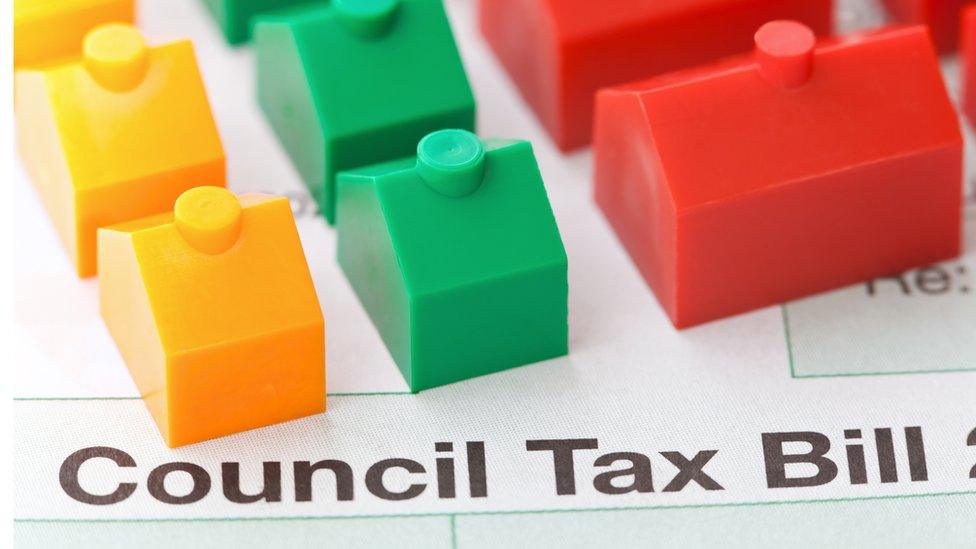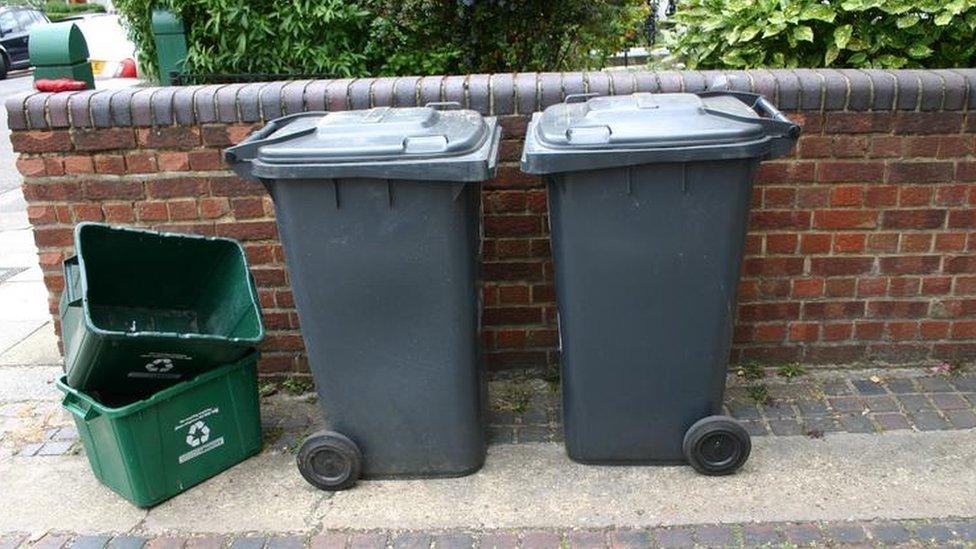Council tax: How do local authorities decide on increases?
- Published
- comments

During budget negotiations, the Scottish government agreed the maximum increase could be 4.79%
The majority of Scotland's local authorities have set the rate of council tax to be paid in their area.
Just under half have chosen a 3% rise but others have decided on the maximum permitted 4.79%.
Click here to see what is happening in your area.
Our local government correspondent has been looking at how councillors make the decision.

Council tax bills typically bring in about 15% of a council's budget
Aberdeen looks set to be the biggest council to go for a maximum rise.
The financial situation and the exact importance of the council tax vary from area to area though, as a rough rule, the bigger councils and those serving more prosperous areas have been more likely to go for a rise of less than 4.79%.
The government argues it has made more money available for local services this year - opponents argue a greater proportion is "ring fenced" which means councils have had to find savings
Typically, the council tax accounts for roughly a fifth of a local authority's income.
Most of their money comes from the Scottish government and business rates while a small proportion comes from service charges.
However, any authority which does not go for a full council tax rise is, in effect, deciding to voluntarily forego some money. There are many reasons why they might do this.
On the one hand, this could allow them to argue that they are trying their hardest to be efficient and find ways to save money which may not be immediately obvious to the public even if staff could well feel the effect.
Yet even where the amount being foregone was relatively modest, any authority which is not putting the council tax up by the maximum permitted amount could find it harder to justify any controversial spending cuts or argue that it is not getting enough government money.
Some will also believe that a rise of less than 4.79% is likely to be popular locally - or at least they may worry about how voters may respond to a maximum rise.
The question of the cost of holding down the council tax also needs to be considered. A council needs to be careful about running down its reserves to hold down the council tax - reserves are meant to be there for emergencies and the public spending watchdog Audit Scotland has previously expressed concerns about the level of reserves held by some.
A number of factors determine just how important the council tax is to each individual council including:
The level it had reached by 2007, when councils had more freedom to determine increases.
The amount the council receives from the government - a complex formula calculates how government money is spread between the 32 authorities.
The type of housing in the local area. Some authorities, generally those in prosperous areas, have a relatively large number of properties in the higher council tax bands. Some others have a high amount in the lower bands.
From next year, councils will have two more significant powers. They will be able to introduce a so-called "tourist tax" - a charge payable on hotel bedrooms - and charges for workplace parking.
While these powers represent a significant empowerment of local government, again the impact will vary from area to area.
Some administrations have already said they do not intent to introduce charges for workplace parking while, obviously, areas with large numbers of hotels and visitors are more likely to believe the "transient visitor levy" could make a difference to their finances.
But it is still too early to say whether these additional powers mean that councils will face fewer difficult spending decisions in the future.
They will have to weight up the pros and cons of using additional powers.
Local government collectively has often argued that it is too dependent on the Scottish government for cash. The relaxation of the cap on council tax rises and the promise of more powers to come represent a significant shift in the balance of power towards councils.
But there is a difference between having the right to do something - and actually using that right.
- Published6 March 2019
